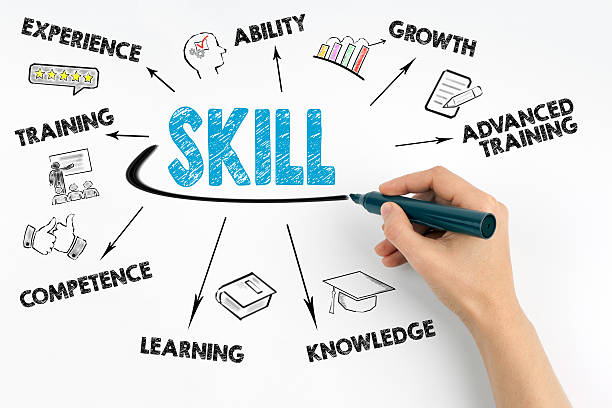Learning new skills
Learning new skills is essential for personal and professional growth, especially in today’s fast-paced world. Understanding the importance of learning new skills has become crucial as technology advances and industries continue to evolve. The ability to acquire and adapt to new knowledge not only helps individuals stay relevant in their careers but also fosters resilience and adaptability in an ever-changing environment. Whether advancing in your career, improving personal abilities, the importance of learning new skills cannot be overstated.
Whether in the context of advancing one’s career, enhancing personal life, or adapting to societal shifts, developing new skills opens up a world of possibilities and fosters resilience in the face of uncertainty. As industries transform and the job market becomes more competitive, individuals who actively seek to improve their skills are better equipped to thrive.
On a professional level
learning new skills can significantly enhance job performance and open up opportunities for career advancement. For instance, mastering emerging technologies, improving communication skills, or learning a new language can make employees more valuable in the workplace. In many fields, staying up-to-date with the latest tools, software, and trends is not just a matter of career progression—it is essential for maintaining job security.They often have a competitive edge over others who may be resistant to change or complacent in their current skill sets.
Moreover, developing new skills increases an individual’s confidence. As people gain competence in unfamiliar areas, they often feel more empowered and capable of taking on new challenges. This sense of accomplishment can boost self-esteem and fuel further motivation to continue learning. A person who is continuously growing their skill set tends to have a more positive outlook on their abilities and is more willing to take risks or step outside their comfort zones.
Learning new skills also improves problem-solving abilities. The more diverse one’s skill set becomes, the more tools and perspectives they have to approach challenges. For instance, learning to code can not only improve technical proficiency but also enhance logical thinking and problem-solving strategies. Likewise, improving interpersonal skills like empathy or negotiation can positively impact relationships, both in professional and personal contexts.

In today’s rapidly shifting world, industries and sectors are undergoing constant transformation, particularly due to the advancement of technology. As automation, artificial intelligence, and new innovations reshape job markets, people who fail to adapt may find themselves left behind. This is why investing in continuous learning is more crucial than ever. Employees who stay committed to developing new competencies are more likely to remain relevant in their careers and maintain a sense of purpose in their work.

Beyond professional benefits, learning new skills contributes significantly to personal growth. Pursuing new hobbies or interests can enhance creativity and bring fulfillment to one’s life. For example, learning to play an instrument or picking up a new sport can provide joy, a sense of achievement, and a break from routine. The challenge of learning something new—whether related to work or personal interests—can help individuals manage stress and maintain mental well-being.
learning new skills
Moreover, learning new skills can foster a greater sense of curiosity and open-mindedness. When people push themselves to try new things, they often experience a broader view of the world. It allows them to understand different perspectives, embrace change, and appreciate the diversity of human experience. Whether learning through formal education, workshops which ultimately enriches one’s life both intellectually and emotionally.
Finally, learning new skills promotes social connectivity. Sharing knowledge and teaching others the skills you’ve acquired not only strengthens your own understanding but also builds stronger relationships. Whether in a professional setting, educational environment, or personal life, the exchange of knowledge fosters collaboration, teamwork, and trust. People who learn new skills often find themselves interacting with like-minded individuals, forming valuable networks that can lead to new opportunities, partnerships, and friendships.
In conclusion, the importance of learning new skills cannot be overstated. It is a powerful tool that can enhance professional growth, increase personal satisfaction, and build resilience. The process of acquiring new knowledge and abilities equips individuals with the confidence, adaptability, and problem-solving skills necessary to succeed in an ever-changing world. In both professional and personal contexts, the ability to continuously learn and develop new skills is key to thriving in the modern world. Whether for career advancement,or navigating the complexities of life, committing to lifelong learning offers countless rewards that contribute to an individual’s overall well-being and success.
